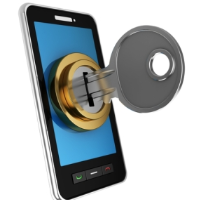Waiting for the Supreme Court to Decide if Cell Phone Use can be Private

Cell phones are a well-established part of American life, what with 85% of the country’s citizens owning one. But what has not been firmly established is just how private their use is, or whether the personal information contained in them can be freely accessed and examined by law enforcement or other government agencies.
Rulings by various federal courts have presented differing legal views on the protection of cell phone data, which means it probably is just a matter of time before the U.S. Supreme Court takes up this issue.
Last year, Chief Justice John G. Roberts Jr. told an audience at Rice University that the high court must identify “the fundamental principle underlying what constitutional protection is and apply it to new issues and new technology.”
This question is “going to be the real challenge for the next 50 years,” Roberts added.
While the chief justice was not addressing cell phones specifically, he could have been doing just that, given the importance of this vital consumer technology and the uncertainty to date of what the federal courts think of it.
On the one hand, there are justices like Norman H. Stahl, with the First Court of Appeals, who wrote for the majority in a 2-1 ruling (U.S. v. Wurie) that cell phone “information is, by and large, of a highly personal nature: photographs, videos, written and audio messages (text, email and voicemail), contacts, calendar appointments, web search and browsing history, purchases and financial and medical records.” He also wrote: “It is the kind of information one would previously have stored in one’s home,” and accessing that by police has historically involved getting a warrant first.
In the ruling, Stahl said the Fourth Amendment applied to the search of a cell phone found on a man arrested for selling drugs, which meant the Constitution protects “the right of the people to be secure in their persons, houses, papers, and effects, against unreasonable searches and seizures.”
Stahl and fellow Judge Kermit V. Lipez endorsed a “bright-line” rule that warrantless cell phone data searches were “categorically unlawful” given the “government’s failure to demonstrate that they are ever necessary to promote officer safety or prevent the destruction of evidence.”
But other federal judges have taken a different view of cell phone data. A panel of the Fifth Circuit Court of Appeals in New Orleans ruled last month that police did not need a warrant before obtaining cell phone location data from telecommunications carriers.
Meanwhile, the Supreme Court has said there are numerous exceptions to the general rule that warrants must be obtained before law enforcement can review a person’s cell phone information.
As far as 1st Circuit Chief Judge Sandra Lynch is concerned, the Supreme Court should settle the matter, and soon.
“I think the preferable course is to speed this case to the Supreme Court,” Lynch wrote.
-Noel Brinkerhoff
To Learn More:
Supreme Court may Need to Decide how Private a Cellphone is (by Robert Barnes, Washington Post)
Locating Criminals by Tracking their Cell Phones’ Digital Fingerprints (Homeland Security News Wire)
Forensic Identification of GSM Mobile Phones (by Jakob Hasse, Thomas Gloe and Martin Beck, Technische Universität Dresden) (pdf)
New Jersey Supreme Court First to Order Warrants for Cell Phone Tracking (by Matt Bewig, AllGov)
Montana becomes First State to Require Search Warrants for Cellphone Location Tracking (by Noel Brinkerhoff, AllGov)
- Top Stories
- Unusual News
- Where is the Money Going?
- Controversies
- U.S. and the World
- Appointments and Resignations
- Latest News
- Musk and Trump Fire Members of Congress
- Trump Calls for Violent Street Demonstrations Against Himself
- Trump Changes Name of Republican Party
- The 2024 Election By the Numbers
- Bashar al-Assad—The Fall of a Rabid AntiSemite






Comments